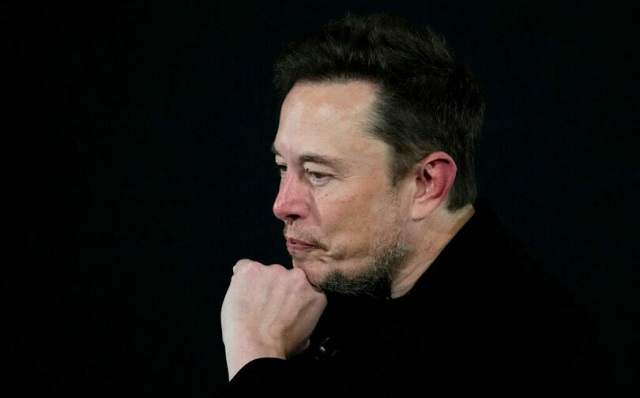Agriculture
EU Farmers Rise Against the Climate Cult
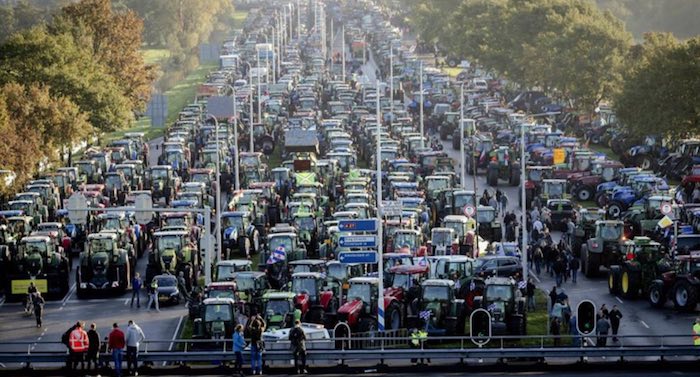
From the Brownstone Institute
BY
The EU Commission is playing a dangerous game. On the one hand, they are attempting to placate farmers by making expedient short-term concessions to them. On the other hand, they are holding fast to their commitment to cut greenhouse gas emissions in Europe by 90% by 2040
Many major arteries connecting Europe have been obstructed or brought to a standstill in recent days by a wave of protests by farmers against what they claim are overly burdensome environmental targets and unsustainable levels of bureaucracy associated with EU and national farming regulations.
The warning shots of this showdown between policymakers and farmers had already been fired on 1st October 2019, when more than 2,000 Dutch tractors caused traffic mayhem in the Netherlands in response to an announcement that livestock farms would have to be bought out and shut down to reduce nitrogen emissions. Early last year, Polish farmers blocked the border with the Ukraine demanding the re-imposition of tariffs on Ukrainian grain.
But it was not until early this year that an EU-wide protest was ignited. German and French protests and tractor blockades made international news, and the blockades were soon replicated in Spain, Portugal, Belgium, Greece, Netherlands, and Ireland. Major highways and ports were blocked and manure was poured over government buildings, as farmers across Europe expressed their frustration at rising farming costs, falling prices for their produce, and crippling environmental regulations that made their products uncompetitive in the global market.
It seems the farmers have European elites rattled, which is hardly surprising, given that EU elections are just around the corner. While the European Commission announced Tuesday it was still committed to achieving a 90% reduction of greenhouse gas emissions in Europe by 2040, it conspicuously omitted any mention of how the farming sector would contribute to that ambitious target. Even more tellingly, the Commission has backed down or fudged on key climate commitments, at least temporarily.
According to politico, EU Commission President Ursula von der Leyen announced on Tuesday that “she was withdrawing an EU effort to rein in pesticide use.” The climbdown on this and other Commission proposals relating to farming was rather embarrassing for the Commission but politically inevitable, given that the protests were spreading rapidly and farmers were showing no signs of going home until their demands were met. As reported by politico,
A note on the possibility of agriculture cutting down on methane and nitrous oxides by 30 percent, which was in earlier drafts of the Commission’s 2040 proposal, was gone by the time it came out on Tuesday. Similarly excised were missives on behavioral change — possibly including eating less meat or dairy — and cutting subsidies for fossil fuels, many of which go to farmers to assist with their diesel costs. Inserted was softer language about the necessity of farming to Europe’s food security and the positive contributions it can make.
The EU Commission is playing a dangerous game. On the one hand, they are attempting to placate farmers by making expedient short-term concessions to them. On the other hand, they are holding fast to their commitment to cut greenhouse gas emissions in Europe by 90% by 2040, while fudging on the fact that a 90% emission cut in 16 years would have drastic implications for farming.
It is clearly politically expedient, especially in an election year, to put out this fire of farming discontent as soon as possible, and buy some peace ahead of June’s European elections. But there is no avoiding the fact that the Commission’s long-term environmental goals, as currently conceived, almost certainly require sacrifices that farmers are simply not willing to accept.
Independently from the merits of EU climate policy, two things are clear: first, EU leaders and environmental activists appear to have vastly underestimated the backlash their policies would spark in the farming community; and second, the apparent success of this dramatic EU-wide protest sets a spectacular precedent that will not go unnoticed among farmers and transport companies, whose operating costs are heavily impacted by environmental regulations like carbon taxes.
The Commission’s embarrassing concessions are proof that high-visibility, disruptive tactics can be effective. As such, we can expect more of this after June’s EU elections if the Commission doubles down again on its climate policy goals.
Republished from the author’s Substack
Agriculture
Farming group accuses Canadian gov’t of trying to blame agriculture for ‘climate change’
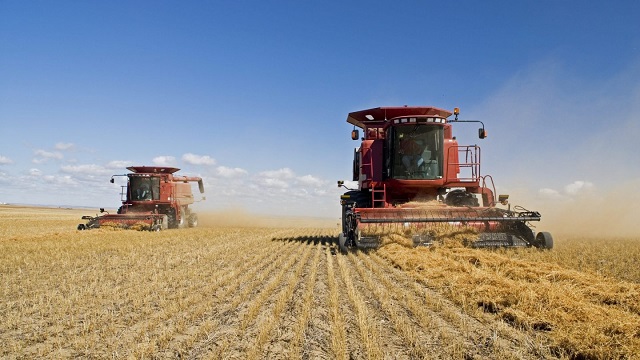
From LifeSiteNews
Grain Farmers of Ontario chairman Jeff Harrison contends that the government’s goal of reducing emissions is not realistic and that the ‘vilification strategy’ is causing more consternation for farmers.
One of Canada’s largest farming groups has said the Liberal federal government of Prime Minister Justin Trudeau is directly going after farmers via a “vilification strategy” under the guise of “climate change” and that a recent Auditor General report proves this to be true.
Grain Farmers of Ontario chairman Jeff Harrison recently said that the Trudeau government’s request to farmers to reduce emissions is not realistic and that it only creates more issues for Canadian farmers.
“Painting this climate picture as the fault of agriculture, it vilifies farmers,” said Harrison, noting it’s a “vilification strategy” to pin the blame on farmers.
“It’s part of the added stress on farmers that they are expected to do the unachievable. They’re expected to solve a problem that they didn’t necessarily create,” he observed.
Harrison’s comments were made after a recent Auditor General report titled “Agriculture and Climate Change Mitigation” picked to pieces the Trudeau government’s voluntary 30 percent emission reduction target by 2030 through curbing fertilizer use for farmers.
The United Nations has declared a war on nitrogen, claiming its use must be slowed as it is “one of the most important pollution issues facing humans.”
However, nitrogen, which is found in fertilizers, makes up about 70 percent of Earth’s air and is essential for plants.
The Auditor General report noted that there is widespread mismanagement along with a lack of transparency from the federal programs. Notably, there was a lack of consultation with stakeholders in the farming industry, as well as farming associations, before the government put in place random fertilizer emission reduction targets.
Harrison noted that such reduction targets are “unachievable targets and unrealistic goals,” adding that such targets “p—– me off, to be honest.”
The war on farmers not unique to Canada
Farmers worldwide are facing increased pressure from governments and special interest groups linked to globalists organizations such as the World Economic Fourm to reduce fertilizer use. Indeed, as recently observed by Dr. Joseph Mercola with LifeSiteNews, the global push to get rid of farmers “from their land is being driven by NGOs, which are primarily funded by the government, making them government extensions.”
“The real agenda, however, may be traced back to the Club of Rome, a think tank that aligned with neo-malthusianism – the idea that an overly large population would decimate resources – and was intending to implement a global depopulation agenda,” Mercola wrote.
“Once the farmers are pushed out, globalists suggest eating bugs will protect the planet by eliminating the need for livestock, cutting down on agricultural land use and protecting the environment. The U.N.’s Food and Agriculture Organization also encourages the consumption of insects and insect-based foods, and the momentum to get farmers off their land is continuing to gain steam.”
Trudeau’s government is trying to force net-zero regulations on all Canadian provinces, notably on electricity generation, as early as 2035. The provinces of Alberta and Saskatchewan are adamantly opposed to Trudeau’s 2035 goals.
The Trudeau government’s current environmental goals, which are in lockstep with the United Nations’ 2030 Agenda for Sustainable Development, include phasing out coal-fired power plants, reducing fertilizer usage, and curbing natural gas use over the coming decades.
Pressure on farmers from Feds comes at same time they are dealing with higher suicide rates
When it comes to Canada’s farmers, they have already been under pressure with increased costs of fuel, not to mention all basic goods and items needed to run a farm, thanks to high inflation due in part to federal overspending.
More concerningly, increased pressures on farmers to curtail fertilizer use, and thus be faced with lower yields, come at the same time that recent studies show suicidal thoughts among farmers at extremely elevated levels.
The 2022 study from Ontario’s University of Guelph found nearly one-third of farmers have “had thoughts of suicide in the last 12 months.” The numbers are more than two times above the general population of Canada.
According to the study, about three-quarters of participating farmers experience “moderate to high-stress and half experience anxiety or depression.”
Adding to their stress, on April 1, Canada’s carbon tax, which was introduced by the government of Trudeau in 2019, increased from $65 to $85 per tonne despite seven of 10 provincial premiers objecting to the increase, and 70% of Canadians saying they are against it.
Trudeau has remained adamant that he will not pause the hikes.
He has pitched his carbon tax as the best way to reduce so-called carbon emissions. However, the tax has added extra financial burdens on households despite hundreds of dollars of rebates per family.
To reach Trudeau’s goal of net zero by 2050, the carbon tax would have to balloon to $350 per tonne.
The reduction and eventual elimination of the use of so-called “fossil fuels” and a transition to unreliable “green” energy has been pushed by the World Economic Forum (WEF) – the globalist group behind the socialist “Great Reset” agenda in which Trudeau and some of his cabinet are involved.
Agriculture
Bill C-282, now in the Senate, risks holding back other economic sectors and further burdening consumers

From the Frontier Centre for Public Policy
Bill C-282 currently sits in the Canadian Senate and stands on the precipice of becoming law in a matter of weeks. Essentially, this bill seeks to bestow immunity upon supply management from any potential future trade negotiations without offering increased market access to potential trade partners.
In simpler terms, it risks holding all other economic sectors hostage solely to safeguard the interests of a small, privileged group of farmers. This is far from an optimal scenario, and the implications of this bill spell bad news for Canadians.
Supply management, which governs poultry, egg, and dairy production in Canada, has traditionally enabled us to fulfill our domestic needs. Under this system, farmers are allocated government-sanctioned quotas to produce food for the nation. At the same time, high tariffs are imposed on imports of items such as chicken, butter, yogurt, cheese, milk, and eggs. This model has been in place for over five decades, ostensibly to shield family farms from economic volatility.
However, despite the implementation of supply management, Canada has witnessed a comparable decline in the number of farms as the United States, where a national supply management scheme does not exist. Supply management has failed to preserve much of anything beyond enriching select agricultural sectors.
For instance, dairy farmers now possess quotas valued at over $25 billion while concurrently burdening dairy processors with the highest-priced industrial milk in the Western world. Recent data indicates a significant surge in prices at the grocery store, with yogurt prices alone soaring by over 30 percent since December 2023. This escalation is increasingly straining the budgets of many consumers.
It’s evident to those knowledgeable about the situation that the emergence of Bill C-282 should come as no surprise. Proponents of supply management exert considerable influence over politicians across party lines, compelling them to support this bill to safeguard the interests of less than one percent of our economy, much to the ignorance of most Canadians. In the last federal budget, the dairy industry alone received over $300 million in research funds, funds that arguably exceed their actual needs.
While Canada’s agricultural sector accounts for approximately seven percent of our GDP, supply-managed industries represent only a small fraction of that figure. Supply-managed farms represent about five percent of all farms in Canada. Forging trade agreements with key partners such as India, China, and the United Kingdom is imperative not only for sectors like automotive, pharmaceuticals, and biotechnology but for the vast majority of farms in livestock and grains to thrive and contribute to global welfare and prosperity. It is essential to recognize that Canada has much more to offer than merely self-sufficiency in food production.
Over time, the marketing boards overseeing quotas for farmers have amassed significant power and have proven themselves politically aggressive. They vehemently oppose any challenges to the existing system, targeting politicians, academics, and groups advocating for reform or abolition. Despite occasional resistance from MPs and Senators, no major political party has dared to question the disproportionate protection afforded to one sector over others. Strengthening our supply-managed sectors necessitates embracing competition, which can only serve to enhance their resilience and competitiveness.
A recent example of the consequences of protectionism is the United Kingdom’s decision to walk away from trade negotiations with Canada due to disagreements over access to our dairy market. Not only do many Canadians appreciate the quality of British cheese, but increased competition in the dairy section would also help drive prices down, a welcome relief given current economic challenges.
In the past decade, Canada has ratified trade agreements such as CUSMA, CETA, and CPTPP, all of which entailed breaches in our supply management regime. Despite initial concerns from farmers, particularly regarding the impact on poultry, eggs, and dairy, these sectors have fared well. A dairy farm in Ontario recently sold for a staggering $21.5 million in Oxford County. Claims of losses resulting from increased market access are often unfounded, as farmer boards simply adjust quotas when producers exit the industry.
In essence, Bill C-282 represents a misguided initiative driven by farmer boards capitalizing on the ignorance of urban residents and politicians regarding rural realities. Embracing further protectionism will not only harm consumers yearning for more competition at the grocery store but also impede the growth opportunities of various agricultural sectors striving to compete globally and stifle the expansion prospects of non-agricultural sectors seeking increased market access.
Dr. Sylvain Charlebois is senior director of the agri-food analytics lab and a professor in food distribution and policy at Dalhousie University.
-

 COVID-191 day ago
COVID-191 day agoKenyan doctor: WHO pandemic treaty aims to ‘maim and kill’ and ‘establish a one-world government’
-
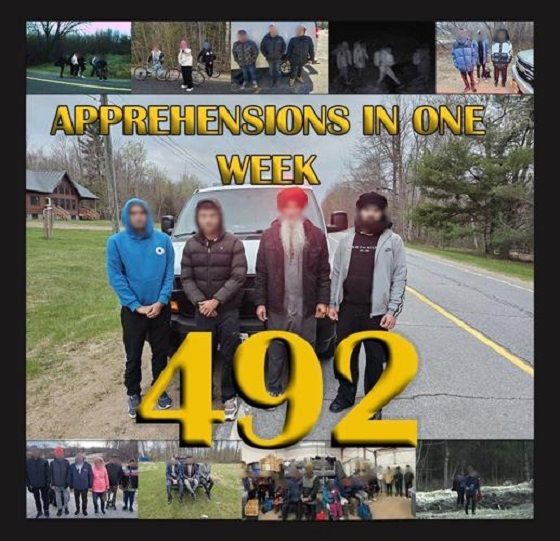
 illegal immigration2 days ago
illegal immigration2 days agoNorthern border apprehensions highest in US history first 6 months of fiscal ’24
-

 espionage2 days ago
espionage2 days agoEXCLUSIVE: House Committee To Investigate Spike In Chinese Illegal Immigration Following DCNF Report
-
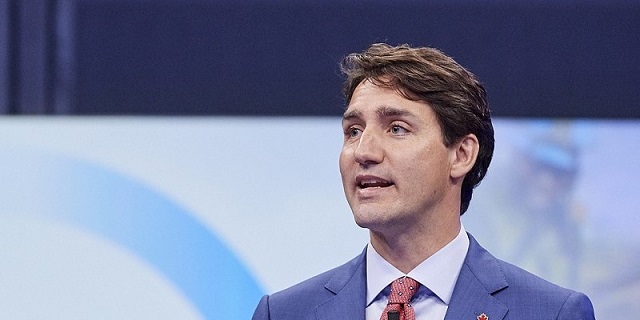
 Automotive1 day ago
Automotive1 day agoElectric vehicle mandates mean misery all around
-

 Bruce Dowbiggin22 hours ago
Bruce Dowbiggin22 hours agoGetting Real About Justin’s Real Estate Economy. It Won’t Last
-

 Censorship Industrial Complex2 days ago
Censorship Industrial Complex2 days agoQuebec court greenlights class action suit against YouTube’s COVID-related content censorship
-

 Brownstone Institute6 hours ago
Brownstone Institute6 hours agoMedical Elites’ Disgrace Over Ivermectin
-
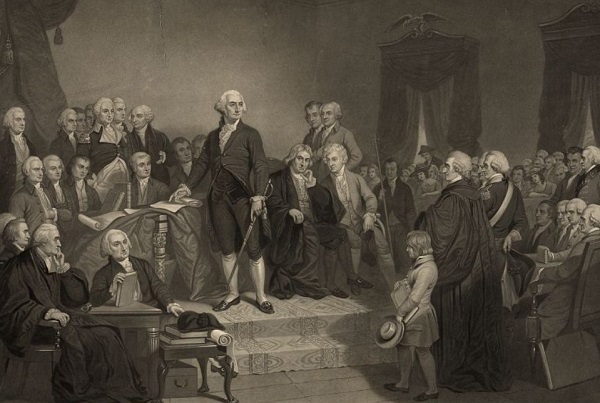
 Opinion7 hours ago
Opinion7 hours agoThe American Experiment Has Gone Down In Flames








